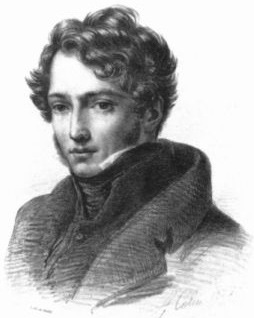
Théodore Géricault born on the 16th of November 1791 was a French artist who despite his short lifespan (dying in 1824) had a remarkable impact on 19th century art, and is considered a pioneer of the Romantic movement.
In total, he only had three years of formal art education, having been trained in English sporting art by Carle Vernet and Pierre-Narcisse Guérin. Afterwards he set to France to study the old masters on his own, by copying artwork in the Louvre. He continued this way from 1810 to 1815, absorbing the techniques of various artists such as Rubens. From 1816-1817 he visited Florence where he similarly studied classical art, being particularly influenced by Baroque art and Michelangelo.
For example, his first major success “The Charging Chasseur” painted in 1812 clearly shows influence from Rubens colorist style as well as an a contemporary subject matter. This painting would mark the beginning of many more works with the subject matter of horses, which he seemed like to like a lot.

However, Géricault is most well remembered for his The Raft of the Medusa” for its sharp political commentary and its unflinching take on the event. It was highly controversial in France for it appointed blame to the French Government, but received much attention nonetheless. Géricault was disappointed with the paintings reception and went to England where it was met with the success he desired. Like the rest of his works, The Medusa was highly highly contemporary. Throughout his works Géricault demonstrated an uncharacteristically keen eye for detail and the Medusa was no exception. Géricault even studied a model of a raft and rotting cadavers in preparation for the piece. This piece marked a turning point in romanticism and helped it prevail against neoclassicism.

Sources
- Théodore Géricault.” The Art Story, The Art Story Foundation,
www.theartstory.org/artist-gericault-theodore-artworks.htm. Accessed 2 Oct.
“Theodore Gericault.” Britannica, 22 Sept. 2018, www.britannica.com/biography/
Theodore-Gericault. Accessed 2 Oct. 2018.
- “Theodore Gericault.” The J. Paul Getty Museum, J. Paul Getty Trust,
www.getty.edu/art/collection/artists/493/thodore-gricault-french-1791-1824/.
Accessed 2 Oct. 2018.
All photographs are taken from wikipedia.
Celia,
Your writing is very good and clear. Your research is bang on and informative. Both van Dyck and Gericault are fine choices here. Citing Gericault as a pivotal Romantic figure in art with Raft of the Medusa is inspired. Only thing is I was asking for a minimum of 5 images and you don’t have that many posted here.
Jeff
Celia,
Excellent research and work on both Homer and Redon. Your writing is clear and informative and you’ve had insights worth noting as you have delved into the artist’s lives. The first paragraph in your Homer post ends abruptly for some reason.
Keep up the good work here.
Jeff